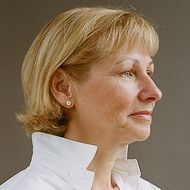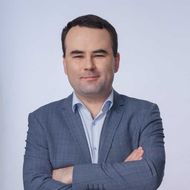‘The Goal of Modern Geography Is To Digitise Expert Knowledge and Integrate It with Big Data’
The importance of geographical science is increasing, as is the demand for education in this field. Since 2020, application numbers for Bachelor’s programmes at HSE University’s Faculty of Geography and Geoinformation Technology have climbed by 30%, while interest in Master’s programmes has also expanded, with applications up 10–15%. Nikolay Kurichev, Dean of the Faculty, spoke about this at a press conference hosted by MIA Rossiya Segodnya.
On August 15, 2025, a press conference on ‘The Geography of the New Generation: Strategic Prospects’ was held at the MIA Rossiya Segodnya press centre. The event was timed to coincide with Geographers’ Day, a professional holiday celebrated in Russia on August 18.
The event was attended by Nikolay Kasimov, First Vice-President of the Russian Geographical Society, President of the Geography Faculty at Lomonosov Moscow State University, and academician of the Russian Academy of Sciences, Olga Solomina, Director of the Institute of Geography of the Russian Academy of Sciences, Head of the Joint Department at the Faculty of Geography and Geoinformation Technology of HSE University and corresponding member of the Russian Academy of Sciences, and Nikolay Kurichev, Dean of the Faculty of Geography and Geoinformation Technology at HSE University. The participants discussed how modern geography is being transformed, and what challenges and opportunities the industry is facing in the context of digitalisation, the development of artificial intelligence, and climate change.
Nikolay Kasimov welcomed the audience and congratulated his colleagues on Geographers’ Day. He emphasised the significance of this holiday for the global community and discussed the environmental challenges of geography, particularly urban pollution.

President of the Geography Faculty at Lomonosov Moscow State University
‘The most important thing to solve environmental problems is measurement, more measurement, and even more measurement. We need to delve deeper into the microcosm to accurately identify pollutants and their range.’
He also referred to statistics from studies on road dust in Moscow, which is one of the major sources of pollution, especially in spring.
Olga Solomina discussed modern research tools such as remote sensing, mathematical modelling, and big data analysis.

Academic Supervisor of the Faculty of Geography and Geoinformation Technology
‘Today, cartography has evolved beyond simply being a map on paper. Now it includes the use of streaming data, three-dimensional images, as well as highly detailed and accurate measurements of objects in motion and space. These new technologies distinguish modern geography from the past. Nowadays, we have access to new tools like space imagery, drones, thermal imagers, and multispectral imaging to aid in studying our natural and social environments.’
Olga Solomina noted that climate change is one of the main challenges for modern geographers. She paid special attention to the study of glaciers, which are rapidly shrinking, as well as the effects of melting permafrost on the landscape transformation.
Nikolay Kurichev, in his speech, emphasised the practical significance of geographical science and its role in addressing pressing issues. Dean of HSE University’s Faculty of Geography discussed topics such as assessing natural and climate risks, selecting effective adaptation measures, developing digital solutions for environmental and climate projects, and managing territories using big data. All of these areas of research are conducted at HSE University’s Faculty of Geography and Geoinformation Technology.

Dean of the Faculty of Geography and Geoinformation Technology
‘There has been a revolution in the field of remote sensing worldwide. Using remote sensing technologies, we can create tools for automatic data analysis and geoanalytics, allowing us to make informed decisions. However, such decisions cannot be based solely on technical grounds—profound expertise is essential. The goal of modern geography is to translate this expert knowledge into a digital format and integrate it with big data through AI-powered geographic tools. Such solutions are essential for businesses, governments, and society as a whole.’
Nikolay Kurichev shared the success of HSE University’s Faculty of Geography in its 2025 admission campaign. Interest in the discipline grew significantly, with applications to the Bachelor’s programme rising by 30% and the passing score jumping by 20 points compared to previous years. As for the Master’s programme, the number of applications for the ‘Low Carbon Development’ and ‘Spatial Data and Applied Geoanalytics’ programmes also experienced growth, with application numbers up by 10–15%.
See also:
HSE Scientists Use MEG for Precise Language Mapping in the Brain
Scientists at the HSE Centre for Language and Brain have demonstrated a more accurate way to identify the boundaries of language regions in the brain. They used magnetoencephalography (MEG) together with a sentence-completion task, which activates language areas and reveals their functioning in real time. This approach can help clinicians plan surgeries more effectively and improve diagnostic accuracy in cases where fMRI is not the optimal method. The study has been published in the European Journal of Neuroscience.
HSE Strategic Technological Projects in 2025
In 2025, HSE University continued its participation in the Priority 2030 Strategic Academic Leadership Programme, maintaining a strong focus on technological leadership in line with the programme’s updated framework. A key element of the university’s technological leadership strategy is its Strategic Technological Projects (STPs), aimed at creating in-demand, knowledge-intensive products and services.
HSE Researchers Offer Guidance to Prevent Undergraduate Burnout
Researchers at the HSE Institute of Education have identified how much time students should ideally devote to their studies, extracurricular activities, and personal life to maintain strong academic performance without compromising their mental health. An analysis of responses from 2,753 students, combined with their actual academic results, revealed several risk factors—such as excessive homework—as well as positive factors, including sufficient sleep, regular exercise, and moderate participation in projects. Based on these findings, the researchers developed practical recommendations for both students and universities. The paper has been published in the European Journal of Education.
When a Virus Steps on a Mine: Ancient Mechanism of Infected Cell Self-Destruction Discovered
When a virus enters a cell, it disrupts the cell’s normal functions. It was previously believed that the cell's protective response to the virus triggered cellular self-destruction. However, a study involving bioinformatics researchers at HSE University has revealed a different mechanism: the cell does not react to the virus itself but to its own transcripts, which become abnormally long. The study has been published in Nature.
Researchers Identify Link between Bilingualism and Cognitive Efficiency
An international team of researchers, including scholars from HSE University, has discovered that knowledge of a foreign language can improve memory performance and increase automaticity when solving complex tasks. The higher a person’s language proficiency, the stronger the effect. The results have been published in the journal Brain and Cognition.
Lost Signal: How Solar Activity Silenced Earth's Radiation
Researchers from HSE University and the Space Research Institute of the Russian Academy of Sciences analysed seven years of data from the ERG (Arase) satellite and, for the first time, provided a detailed description of a new type of radio emission from near-Earth space—the hectometric continuum, first discovered in 2017. The researchers found that this radiation appears a few hours after sunset and disappears one to three hours after sunrise. It was most frequently observed during the summer months and less often in spring and autumn. However, by mid-2022, when the Sun entered a phase of increased activity, the radiation had completely vanished—though the scientists believe the signal may reappear in the future. The study has been published in the Journal of Geophysical Research: Space Physics.
‘Engagement in the Scientific Process’: HSE Launches Master’s Programme in Neurobiology
The HSE University Academic Council has elected to launch a new Master's programme in Neurobiology for students majoring in Biology. Students of the programme will have access to unique equipment and research groups, providing them with the knowledge and experience to pursue careers in science, medicine and pharmacy, IT and neurotechnology, and education and HR services.
Banking Crises Drive Biodiversity Loss
Economists from HSE University, MGIMO University, and Bocconi University have found that financial crises have a significant negative impact on biodiversity and the environment. This relationship appears to be bi-directional: as global biodiversity declines, the likelihood of new crises increases. The study examines the status of populations encompassing thousands of species worldwide over the past 50 years. The article has been published in Economics Letters, an international journal.
Scientists Discover That the Brain Responds to Others’ Actions as if They Were Its Own
When we watch someone move their finger, our brain doesn’t remain passive. Research conducted by scientists from HSE University and Lausanne University Hospital shows that observing movement activates the motor cortex as if we were performing the action ourselves—while simultaneously ‘silencing’ unnecessary muscles. The findings were published in Scientific Reports.
Russian Scientists Investigate Age-Related Differences in Brain Damage Volume Following Childhood Stroke
A team of Russian scientists and clinicians, including Sofya Kulikova from HSE University in Perm, compared the extent and characteristics of brain damage in children who experienced a stroke either within the first four weeks of life or before the age of two. The researchers found that the younger the child, the more extensive the brain damage—particularly in the frontal and parietal lobes, which are responsible for movement, language, and thinking. The study, published in Neuroscience and Behavioral Physiology, provides insights into how age can influence the nature and extent of brain lesions and lays the groundwork for developing personalised rehabilitation programmes for children who experience a stroke early in life.


